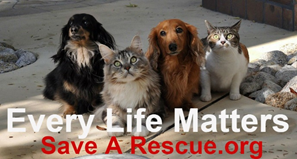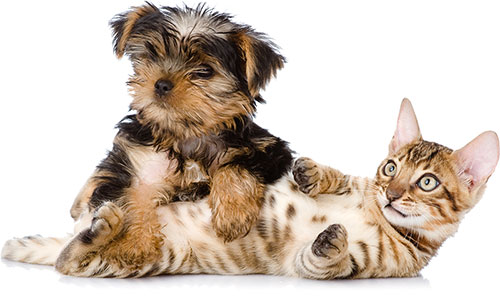Bev Gun-Munro, Dog Behavioral Expert
July 19, 2018
#1 Pets De-Hydrate More Quickly than People!
-
-
- Dogs can get dehydrated quickly, so give them plenty of fresh, clean water when it’s hot or humid outdoors. Make sure your Dogs have a shady place to get out of the sun, be careful not to over-exercise them, and keep them indoors when it’s extremely hot.
-
Keep your dog hydrated!
Different dogs have different needs when battling the heat. Keep in mind that darker coats absorb more heat than lighter coats. Also, overweight dogs are at higher risk for dehydration. Carry a bottle of water when going on a walk with your dog. Better yet have your dog carry it for you in a backpack or a vest! The water in the bottles will keep the dog cooler and also give the dog a sense of purpose.
#2 Recognize Pet Over-Heating Symptoms.
-
-
- They include excessive panting or difficulty breathing, increased heart and respiratory rate, drooling, mild weakness, stupor or even collapse. Symptoms can also include seizures, bloody diarrhea and vomit along with an elevated body temperature of over 104 degrees.
- Dogs cool from the bottom up.
Make sure to spray the paws and stomach, not just the top of the dog, when spraying it with water. A wet towel does more good on the bottom of your dog than when laid on the top of its coat
-
#3 Flat Faced Breeds ~ Sensitive Respitory Systems.
Dog Breeds with flat faces, like Pugs, Boston Terriers, French Bulldogs, even Cats such as Persians, etc., are more susceptible to heat stroke since they cannot pant as effectively. Dogs and Cats, along with the elderly, the overweight, and those with heart or lung diseases, should be kept cool in air-conditioned rooms as much as possible.
#4 Dogs Left in Parked Cars in Summer Heat ~ Never!
Vehicles heat up like ovens ~ very quickly ~ & retain the
heat even if it is in the shade.
Plus, a dog may get overexcited in the car due to
passersby or panic from claustrophobia, making
dehydration more likely.
On longer trips, make sure you have water for your pets
and keep the AC running.
Dogs can’t sweat, except through their feet, and inside temperatures can lead to fatal heat stroke. We lose way too many dogs every summer due to people thinking their dog will be OK in a parked, shaded area, etc. It is not OK. It is now illegal in several States.
#5 Swimming Pools & LifeJackets on Boats.
Do not leave Dogs unsupervised around a Pool
Not all dogs are good swimmers. Introduce your Dogs to water gradually, show them where the ‘steps’ for exiting the pool are….. and make sure they wear flotation devices when on boats. Rinse your dog off after swimming to remove chlorine or salt from his fur and try to keep your dog from drinking pool water, which contains chlorine and other chemicals.
Life Jackets On ALL Pets taken out on Boats Please!
They can’t cling to decks like you think they can/should.
#6 Screen All 2nd Story Floor Windows & Deck Railings.
-
-
- Open unscreened windows & patio balconies pose a real danger to Dogs & Cats, who often fall out and or over them. Keep all unscreened windows or doors in your home closed, and make sure adjustable screens are tightly secured. Secure lower balcony railings with pet proof protective fencing.
-
#7 Short Summer Coats & Sunscreens.
-
-
- Trim longer hair on your dog, but never shave your dog: The layers of dogs’ coats protect them from overheating and sunburn. Brushing cats more often than usual can prevent problems caused by excessive heat. And be sure that any sunscreen or insect repellent product you use on your Dogs is labeled specifically for use on animals.
-
#8 Hot Sidewalks & Asphalt.
-
-
- When the temperature is very high, don’t let your dog linger on hot asphalt. Being so close to the ground, your pooch’s body can heat up quickly, and sensitive paw pads can burn. Keep walks during these times to a minimum.
- Some folks resort to ‘doggie booties’ to protect their dog’s feet from the hot, hot asphalt.
-
#9 Citronella Candles, Insecticides, Rodent Poisons.
-
-
- Commonly used rodenticides and lawn and garden insecticides can be harmful to cats and dogs if ingested, so keep them out of reach. Keep citronella candles, tiki torch products and insect coils of out Dogs’ reach as well.
-
#10 BB-Q Foods Can be Dangerous Too!
Remember that food and drink commonly found at barbeques can be poisonous to Dogs. Keep alcoholic beverages away from Dogs, as they can cause intoxication, depression and comas.
Similarly, remember that the snacks enjoyed by your human friends should not be a treat for your pet; any change of diet, even for one meal, may give your dog or cat severe digestive ailments.
#11 4th of July ~ Fireworks vs. Dogs & Cats.
-
-
- Please leave Dogs at home when you head out to Fourth of July celebrations, and never use fireworks around Dogs. Exposure to lit fireworks can potentially result in severe burns or trauma, and even unused fireworks can contain hazardous materials.
- Many Dogs are also fearful of loud noises and can become lost, scared or disoriented, so it’s best to keep your little guys safe from the noise in a quiet, sheltered and escape-proof area of your home.
-
#12 Exercise your Dog Early in the Morning/Late at Night.
Since these are the cooler parts of the day, this will make
the walk more comfortable for both you and your dog. I’m a believer in vigorous exercise for healthy dogs, but this is the time of year to back off on exercise intensity.
#13 Innovative ways to Cool Your Dog.
A] Wet a face cloth and freeze it in your refrigerator freezer. Give to them to chew on.
B] Wet an old towel and leave on the deck for them to lay on.
C] Kiddy pool full of water they can safely lay in.
D] Let your dog dig!
Your dog may resort to finding his own way to avoid the heat. Dogs by nature dig their dens not out of frustration but to find food, hide, give birth–or keep cool! If it’s possible, locate a shady area where it’s okay for your dog to dig.







